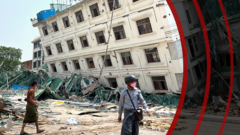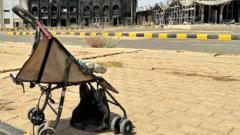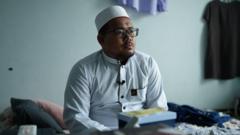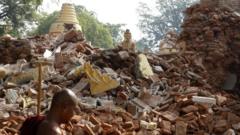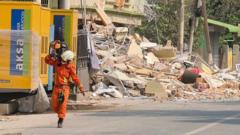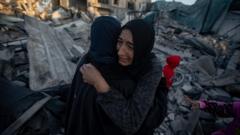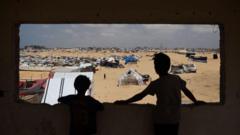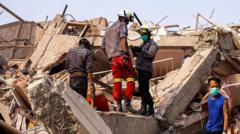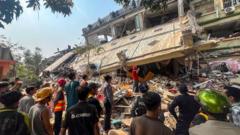With the Sudanese army's recent capture of Khartoum from the RSF, the city emerges as a haunting landscape of destruction. Amid the rubble, citizens celebrate newfound freedom, yet the psychological scars and unresolved fears linger heavily in the air.
Khartoum's Desolation: A City Reclaims Its Capital Amidst Chaos
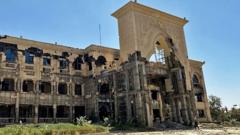
Khartoum's Desolation: A City Reclaims Its Capital Amidst Chaos
The aftermath of intense urban warfare in Sudan’s capital reveals layers of devastation and fleeting hope as residents attempt to rebuild their lives.
The aftermath of weeks-long combat in Khartoum has left the city battered and unrecognizable. Following the Sudanese army's retaking of the capital from the paramilitary Rapid Support Forces (RSF), an eerie quiet fills the streets where once vibrant life thrived. A journey through the wreckage reveals a city marked by loss, yet glimmers of resilience shine through as its residents strive for revival.
Early visits to key sites, like the presidential palace—a critical stronghold for the RSF—highlight the extreme devastation. Inside, the somber atmosphere is palpable, with shattered glass and ghostly remnants of official decor. Looted beyond recognition, the palace symbolizes both the army’s victory and the broader turmoil the country has endured.
The desolation extends beyond government buildings; vital infrastructures such as banks and airports lie scorched and abandoned. While an international airport transformed into a twisted graveyard of charred aircraft serves as a stark reminder of the conflict's impact, the community's spirit flickers in the face of despair. Eid festivities mark a moment of release, as soldiers and citizens celebrate the perceived end of RSF's oppressive hold amidst a landscape of ruin.
Yet, under the surface of jubilant gatherings, the weight of survival looms large. Many citizens are without regular access to food and basic needs, battling trauma while attempting to reconstruct their daily existence. The hardships of war haunt the young and old alike, with memories of violence and fear etched into their collective psyche.
As Khartoum tries to re-establish its identity, citizens express hope for a future filled with reconstruction and peace. Conversations reveal a strong yearning for investment and rejuvenation, but the questions of safety and freedom echo loudly. Activists like Duaa Tariq voice concerns over the potential for hard-won liberties to once again slip away amid shifting power dynamics.
As a new chapter in Sudan's history unfolds, the city balances precariously between emotional scars and the promise of renewal. For many, simply feeling safe enough to carry a mobile phone symbolizes a step toward reclaiming normalcy. However, deep-seated fears for the future remain an ever-present backdrop as they pray for healing across the nation.

